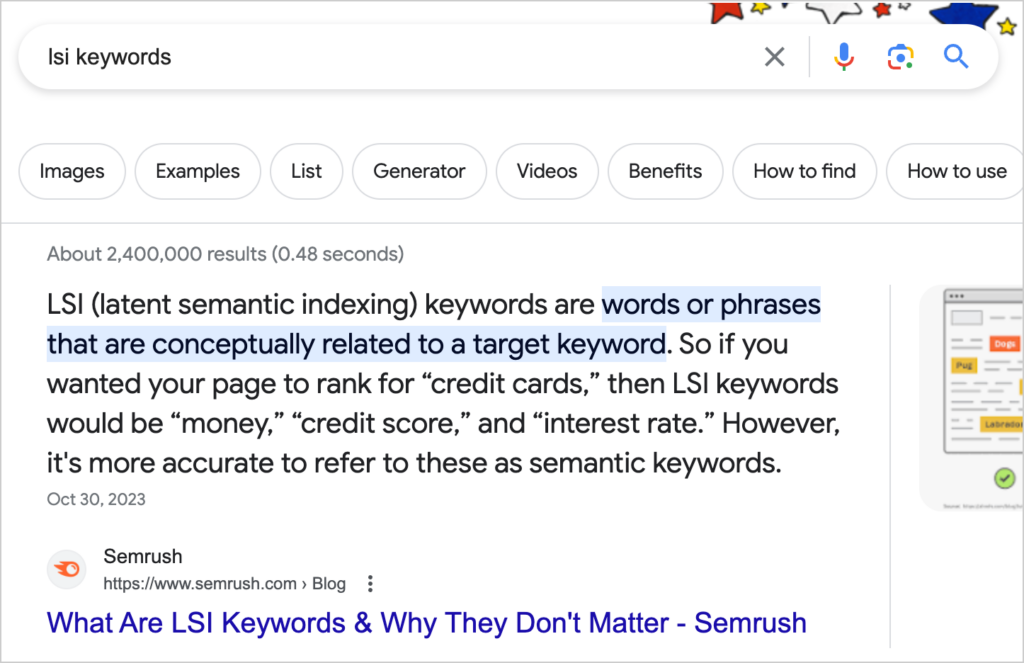Your cart is currently empty!
LSI keywords are an SEO term that shouldn’t be taken seriously. In this quick article, we’ll explain why and offer advice on what to do when an SEO offers them as a service.
What are LSI Keywords?
Latent Semantic Indexing (LSI) keywords are terms that search engines can use to better understand the context and relevance of your content.
That’s a sterile way of saying: They’re keywords related to your primary keyword. However, they don’t have actual importance in SEO. It was a popular theory that has been debunked.
“There’s no such thing” as LSI Keywords
The citation for debunking LSI keywords often returns to this 2019 tweet from Google’s John Mu. In the SEO community, what Mu says is taken as scripture, as he has insights into Google Search‘s inner workings.
Here’s the tweet:
So, don’t focus your keyword research strategy on LSI keywords, as they don’t exist. Instead, provide quality content for your target keywords and cover related subjects to help build out topic authority.
What if an SEO offers LSI keyword research?
Don’t go with them! They are offering services that have no real SEO value, so you should go with a different SEO professional or agency. They’re counting on you not Googling “lsi keywords”:

That will show this article on Semrush, a reputable SEO software company, explaining in detail why LSI keywords don’t matter.
So, if you want actionable data and not the SEO equivalent of snake oil (there’s a lotta that junk out there), go with another option.
Best Practices for Related Keywords
Even though LSI keywords are SEO phantoms, let’s review some best practices for covering related topics and keywords:
- Don’t overdo it: Don’t stuff your content with related keywords. Use them naturally, just like any other words in your writing. Keyword stuffing is a big no-no.
- Use related keywords in headings: Include related keywords in your H2s and H3s to help search engines understand your content better. This should naturally happen by covering subtopics and interests.
- Write for humans, not robots: Your content should be reader-friendly. Don’t sacrifice readability and engagement for the sake of SEO.
- Mix it up: Use various keywords instead of repeating the same ones. This will help make your content more natural and comprehensive.
Bottom Line
While LSI keywords “aren’t a thing”, it’s important to consider the nature of related topics. Some SEO tools might tell you to include LSI keywords, which you don’t need to worry about, but if you find related topic suggestions helpful, go ahead and use them.
Ultimately, it comes down to creating relevant and useful content for searchers. If you’re doing that, you’re approaching SEO with practical tactics.
Topics






